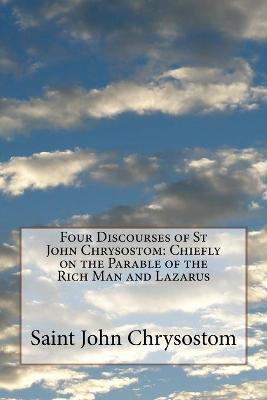Chiefly on the Parable of the Rich Man and Lazarus Excerpt: OF the Christian Fathers, none have gained such fame, and few have left remains so voluminous as Chrysostom. In the melancholy narrative of Gibbon, two Christian champions are presented as men of real power and vigour of mind. The historian pauses to detail their acts and estimate their influence, but his admiration seems rather spontaneously and involuntarily shown, than formally expressed. These two men are Athanasius and John Chrysostom. The one is the man of unyielding polemical skill, of undaunted courage and astounding energy. The latter possesses in a remarkable degree, that which the former lacked or repressed, imaginative genius. As an orator, Chrysostom must have been as pre-eminent as Athanasius was as a polemical champion. "They [the critics of succeeding times] unaminously attribute to the Christian orator the free command of an elegant and copious language, the judgment to conceal the advantages which he derived from the knowledge of rhetoric and philosophy, an inexhaustible fund of metaphors and similitudes, of ideas and images to vary and illustrate the most familiar topics, the happy art of engaging the passions in the service of virtue, and of exposing the folly as well as the turpitude of vice, almost with the truth and spirit of a dramatic representation." As a writer, too, the same historian, though speaking of the Letters only, which are of far less value than his Essays and Commentaries, (speaking of his last days in exile) says, "The respectful attention of the Christian world was fixed on a desert spot among the mountains of Taurus. From that solitude the Archbishop, whose active mind was invigorated by misfortunes, maintained a strict and frequent correspondence with the most distant provinces." And, in a footnote, "Two hundred and forty two of the epistles of Chrysostom are still extant. They are addressed to a variety of persons, and show a firmness of mind much superior to that of Cicero in his exile." The orator must always fail to leave any worthy memorial of his genius. As might have been expected, the best remains of Chrysostom are those of his works which were not orally delivered, or which may be supposed to have been at least committed to writing by himself. The Sermons must of necessity be inadequately represented. And since the genius of Chrysostom worked chiefly by these oral discourses, it follows that his remains are weakest in that point in which the man h










